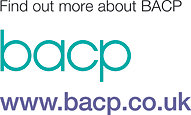Fees
All sessions are currently online amid Covid-19 measures.
One-to-one:
£80 (full rate); £65-80 (mid rate); £50–65 (low rate)
Please note, all my mid- and low-rate slots are now filled.
Sessions are held weekly, at the same time and place each week, and last for 50 minutes.
Sessions are paid weekly or monthly in advance via bank transfer.
Couples/Relationships:
Initial session: £100
Sessions thereafter: £120 (bi-weekly), or £100 (weekly)
Please note, all concession slots are filled.
Sessions are held weekly or bi-weekly, at the same time and place each session, and last 1 hour.
Sessions are paid weekly or monthly in advance via bank transfer.
Group therapy, personal development groups and support groups:
Please enquire for fees.
Groups run for 12 weeks, with up to 12 members per group. If a group is already filled, or you miss the start date of the group process, you will be placed on a priority list for the start of the next group.
Sessions are held weekly, at the same time and place each session, and last 1 hour.
Sessions are paid for in full in advance, and all sessions must be attended.
Private health insurance
I am a registered provider of counselling and psychotherapy with AXA PPP and Vitality Health – if you have a private health policy with either of these providers, you can arrange for your therapy sessions to be paid for by your insurance. Before you contact me, you will be required to obtain an authorisation code from them.
Musicians/performance artist funding
I am a registered practitioner with BAPAM – the British Association for Performance Arts Medicine. If you have made a successful funding application through Help Musicians UK, Royal Society of Musicians or the PRS Members' Fund towards the cost of therapy, please provide your confirmation email/letter. If you are a musician/performance artist, you may be eligible to apply for funding through these organisations.
FAQs:
How many sessions?
This will be agreed between us at the start following consultation based on what feels suitable for your context.
I work mostly long term, with routine review, and prefer to work this way. This can be open ended or over an agreed period of time.
In some cases, short term therapy is helpful – I recommend a minimum of 8-12 sessions, with an option of extending if required.
Where do sessions take place?
Currently sessions are online via Doxy.me or Zoom amid Covid measures.
In usual circumstances, sessions are face-to-face in a safe, modern therapy rooms in north London (or online for those abroad or physically/medically unable to attend sessions in person).
What happens in a session?
I'm aware of the stigma around counselling and psychotherapy, and the frustrations that come with seeking help. Counselling is a private space to talk through what's going on in your life or how you feel without fear of repercussions. You remain the expert in your own life and we'll work together to find insights for yourself. My style is warm and empathic, providing a safe space for you to talk. My aim is not to interpret or define who you are, but to support you to define yourself and what you want when you remove society's expectations out of the equation.
Sessions can at times feel spontaneous and playful, and other times much more reflective with dialogue, really giving you time and space to be heard. I may, where appropriate, incorporate creative experiments such as 2-chair work, drawing, dream work and visualisation exercises, but I work organically with what you bring to the session, without any fixed agenda.
What's your approach?
Gestalt. Gestalt therapy was developed in the 1960s by founder Fritz Perls, focusing on here-and-now awareness and taking a more holistic approach to therapy. Often, it is not just what we say that can inform us about ourselves, but what our bodies are doing in relation to our words. We might talk about how happy we are, for example, but the tears in our eyes say otherwise; we could frown at the mention of a person's name even without realising it. In Gestalt therapy, we notice these micro physical responses and give them a voice. What are these unheard parts of ourselves trying to say? Through a process of curiosity and exploration, we get to the crux of underlying feelings and begin to build up a picture of our authentic selves.
"I do my thing and you do your thing.
I am not in this world to live up to your expectations,
And you are not in this world to live up to mine.
You are you, and I am I,
and if by chance we find each other, it's beautiful.
If not, it can't be helped."
—Gestalt Prayer by Fritz Perls, founder of Gestalt therapy, 1969
What are your therapy qualifications?
MA Gestalt Psychotherapy (Distinction), London Metropolitan University. Individual and Group Psychotherapy
PG Diploma Gestalt Psychotherapy (Individual and Group Psychotherapy), London Metropolitan University
PG Certificate in Couples and Relationship Counselling
BACP-Accredited Diploma in Counselling, The Gestalt Centre
Additional qualifications:
MA Comparative Literature
BA (Hons) Classics and French
Samaritans Helpline listener training
Mind mental health life coach training
